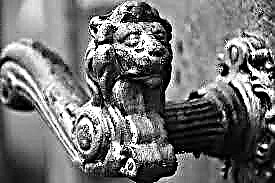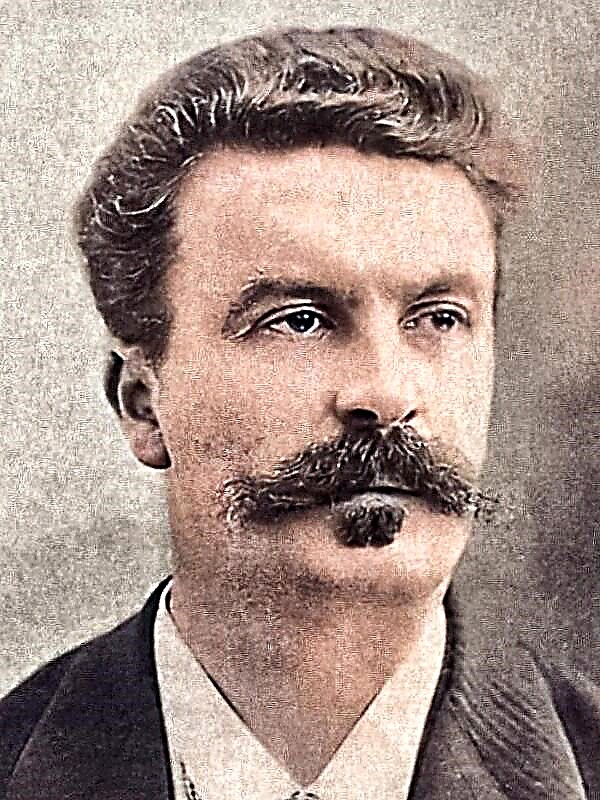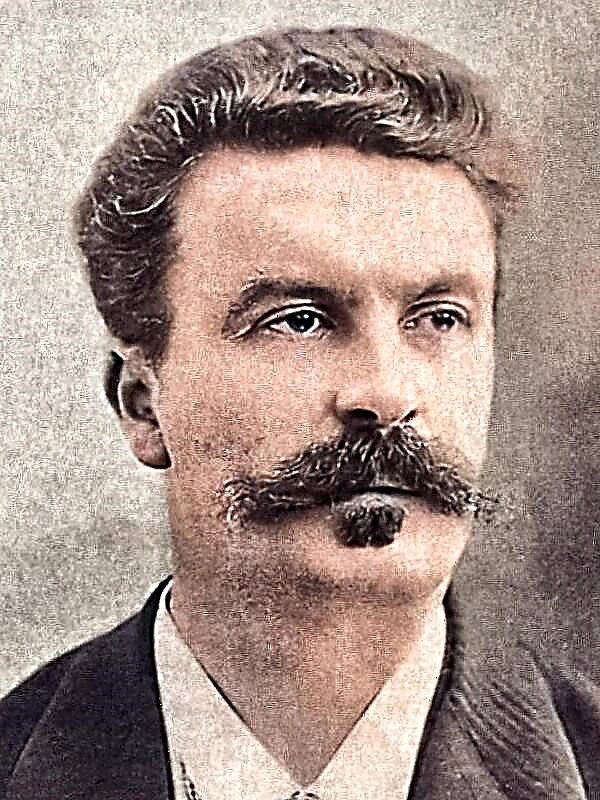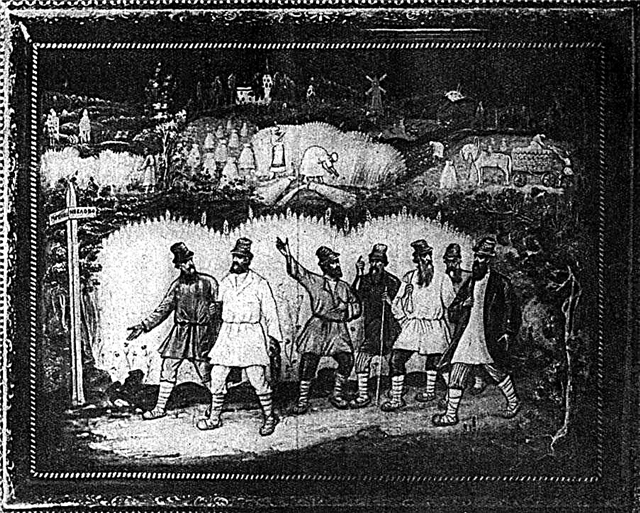: An officer of the Russian army falls in love with a serf actress, participates in the liberation of Italy captured by the revolution from Napoleon’s troops and the passage of Suvorov’s army through the Alps.
The action takes place at the end of the 18th century.
Love of Staal and Nastenka
Twenty-three-year-old Yuri Staal, a lieutenant in the Horse Guards Regiment, was poor and in love with Nastya, a 28-year-old serf actress.
Yuri Staal - 23-year-old lieutenant of the Horse Guards Regiment
Nastya - 28-year-old serf actress, owned by Barataev, beloved Staal
Her master, a very ugly man of about fifty, a freemason and an alchemist, gathered with Nastenka on a trip to Europe and offered Staal the position of either secretary or guide. He happily agreed.
At that time, the 67-year-old Empress Catherine II died. Her close, Count Bezborodko, was afraid of Paul, the son and heir of Catherine, a strange and vengeful man, and helped him destroy the will of the empress, in which she gave the throne to her grandson.
A week later, the embalmed body of Catherine II was transferred to the throne room, where anyone could say goodbye to her. Here Staal met with Nastya and his friend Ivanchuk, secretary Bezborodko, who invited the lovers to a country zucchini.
Ivanchuk - Secretary of Count Bezborodko
Nastya was a kind and intelligent woman. She was afraid of Baratayev, and was easy on physical love.
She felt stronger than ever that she could at any moment fall in love with the "little one" without memory, if she had not yet fallen in love - but, it seems, she had already fallen in love without memory - well, yes, of course, from the first day ...
In the tavern, Ivanchuk beat Stahal to rent a separate dating house. The hut turned out to be cold and dirty, the girl got scared and ran away, he did not keep her.
Staal travels to Italy and breaks up with Nastya
In Paris, a reception was held in honor of the Turkish ambassador. It was led by Talleyrand de Perigord, an “almost legendary man” who was hated by all French political parties, but somehow became Minister of Foreign Affairs. This magnificent ceremony was to support the greatly shaken prestige of the revolutionary government of France.
During the reception, Talleyrand met with his long-time acquaintance, a mysterious old man who now bears the name of Pierre Lamor, who believed that the tyrant would replace the revolutionary government, and we will become the young general Napoleon Bonaparte, who has now successfully fought in Italy.
Pierre Lamore - a mysterious old man, an active participant in political intrigues
Lamore did not know that Talleyrand had already joined his party.
Barataev, Nastya and Staal meanwhile traveled to Italy. Not understanding his duties, Staal set about organizing the trip.
There was nothing between Staal and Nastenka, but he knew that sooner or later they would get closer, and he enjoyed his love. He was not jealous of Barataev, although he saw how Nastya went to the master at night.
Italy was engulfed in revolution, and Bonaparte's troops occupied Venice. Nastya and Staall led tourists in Venice. Barataev disappeared all day in the libraries, and in the evenings he wrote down his arguments in a thick notebook.
Once Barataev accidentally saw how Nastya and Staal kiss, but pretended not to notice this. Then the travelers moved from Venice to Milan, where Staal seduced Nastenka and looked into Barataev’s notebook.
After that, Barataev fired Staal without explanation, gave money for the trip home and left with Nastenka without saying goodbye. The humiliated Staal realized that the old man knew about his affair with Nastya.
Staal becomes a Maltese knight and takes part in hostilities
St. Petersburg, 1799. Paul I became the Grand Master of the Order of Malta and, on his model, created a personal guard corps - cavalry guards. Those enrolled in it automatically became Maltese knights. Paul I was considered insane.
Staal also wanted to become a cavalry guard. He asked for help from the terminally ill Chancellor Bezborodko, and he invited him to the ball, which he arranged in his mansion.
The device was engaged in the ball Ivanchuk. Having lost his way in the endless corridors of the mansion, Staal fell into one of the lodges for the privacy of the couple, from where the ballroom was visible. Looking at a brilliant society, he realized that he needed wealth more than power.
Russia is one of the very few countries where a completely poor person can use power and universal honor.
Suddenly, Yekaterina Lopukhina, stepmother of the emperor’s favorite, entered the box to Staal. He began to flirt with her, but did not dare to take decisive action and missed his chance.
The emperor, at the request of Bezborodko, knighted Stahal directly at the ball and sent him to the army, which was opposed to the Partenopean Republic, which had recently formed around Naples.
Meanwhile, the seventy-year-old Field Marshal Suvorov, unusually peppy, hardy and ambitious, was on his way to free Northern Italy from the French troops. He was annoyed and admired by Bonaparte's courage.
The Neapolitan King Ferdinand IV was expelled from the Parthenope Republic. His supporter, Cardinal Ruffo, gathered an army of robbers and mob and led a rebellion against the republic.
Ferdinand IV asked the Russian emperor for help, and he sent a small landing to Naples, which also included Staal. The revolutionaries were defeated and, together with their families, took refuge in two castles. Humane Ruffo promised to let the besieged go to France.
Barataev and Pierre Lamor were in the same Masonic lodge. Having met an old friend in revolutionary Naples, Lamore persuaded him to move with the Nastenka to the castle to the revolutionaries, where it was safer.
Immediately after Ruffo's victory, Admiral Nelson's squadron approached Naples. The admiral’s mistress, Emma Hamilton, the wife of the English ambassador, had an unnatural connection with the wife of Ferdinand IV. Upon learning that Ruffo decided to let the revolutionaries go, the queen was indignant, and Lady Hamilton forced Nelson to restore justice.
Nelson canceled Ruffo's contract, but the cardinal did not want to break his word. Long negotiations began. The Cardinal did not speak English, and Staal offered his services as a translator.
Negotiations did not lead to anything, the admiral gave in and allowed the besieged to sail off the coast of Italy. Barataev and Nastya also left the fortress. They walked five steps from Staal, but he did not see them.
As soon as the revolutionaries were on the high seas, they were arrested and brought to trial by Nelson, who did not promise that they would sail to France, and received permission from Ferdinand IV.
The action of the king could not be called treachery. The king was the king.
Nelson ordered one of the leaders of the Neapolitan Republic to hang his ship on a rail. The rest had their heads chopped off in Naples. The British were ashamed that their admiral had broken his word for his mistress.
Staal crosses the Alps with the army of Suvorov
French troops were preparing for the battle of Novi. The Russian-Austrian army of Suvorov has already occupied Milan and Turin. Stahl, who hoped to excel in this battle, has already been awarded for a Neapolitan campaign, which he liked to boast of. Now Staal served in the headquarters, where he fell due to knowledge of foreign languages.
Austrian generals were unhappy with Suvorov, believing that he did not have a real battle plan. Together with the envoy, who was to present these considerations to the field marshal, Suvorov’s headquarters fell on the eve of the battle and Staal.
Suvorov knew that the soldiers considered him a sorcerer who wasn’t taken by a bullet, and maintained this reputation by constantly throwing “strange things” and muttering incomprehensible words. The officers considered the field marshal a genius and an eccentric, and among themselves they called them “wondrous”. Only his batman knew that the seeming tirelessness was going to Suvorov very hard.
For seventy-year-old Suvorov, his invincibility was not only the basis of military prestige: it was meaning, the only justification of his whole life.
Field Marshal won the battle of Novi, ousting the French troops from Italy, after which Paul I ordered him to cross the Alps and free Switzerland from the French. Suvorov stopped in the “boring village” of the Tavern and waited for the mules that the Austrians had to provide for the campaign.
Staal often recalled St. Petersburg and Ekaterina Lopukhina, believing that she could only rise with her help. He was very upset by the news of the death of Bezborodko - only the prince connected Staal with high society.
Staal wrote about Ivanchuk about his successes and adventures. He intended to forward the next letters with the traveler, who turned out to be Barataev, with whom Nastenka was also.
Nastya got old, Staal no longer loved her, but, smelling the familiar scent of spirits, he remembered Italy and past feelings. Before parting, Staal promised that he would find Nastenka in St. Petersburg after the war.
Crossing the Alps stunned and exhausted Staal. He was mortally frightened by the abyss where horses and people fell.
Miracles of courage, miracles of steadfastness, atrocities, selflessness, cruelty, madness - this is war ... Such is life, only it is smaller and smaller. War is an accelerated, tenfold life ...
Having overcome the pass, the army went down to the Devil's Valley, through which, over the waterfall, the terrible Devil's Bridge was thrown. Preparing to take the bridge, Staall felt that he had changed a lot, and Nastya and their unexpected meeting were in the distant past.
It was possible to get to the bridge only through a tunnel cut into the rock - the Urn dungeon - which French soldiers were waiting for. Despite this, Suvorov’s troops broke through the tunnel and defeated the French army.
Finally, the French destroyed the bridge span and prevented the Russians from rebuilding it. The Russian army was trapped on the edge of a deep river valley, but Suvorov did not give up and exclaimed: “Where the deer passes, we will go too!”

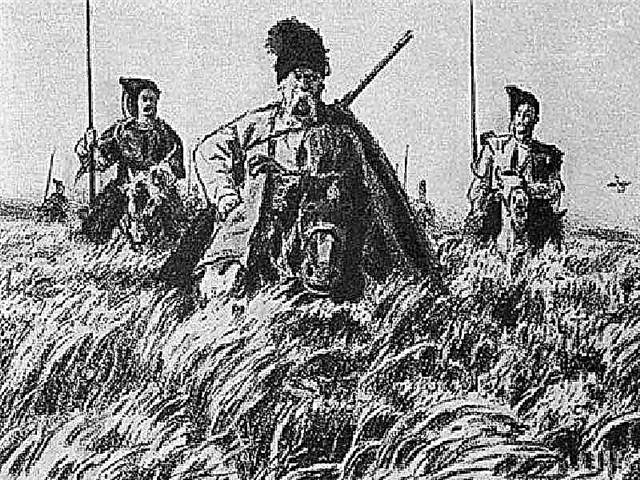

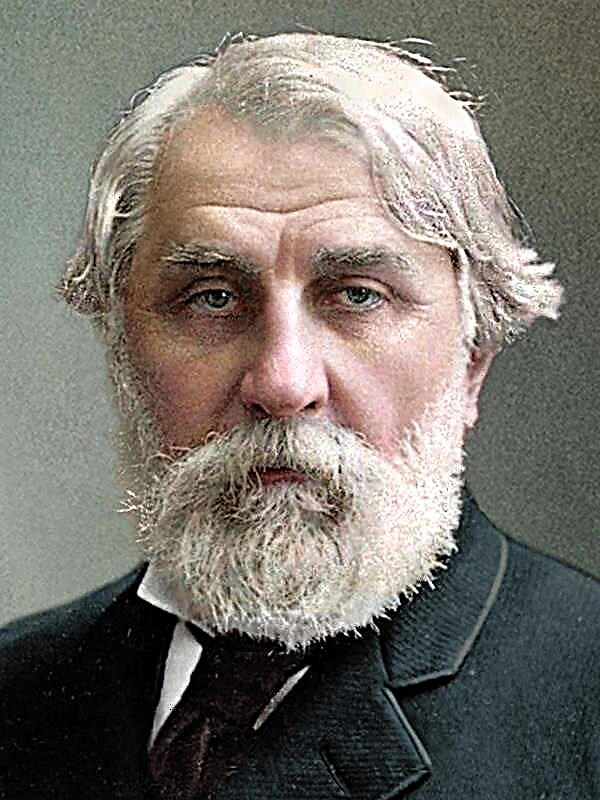


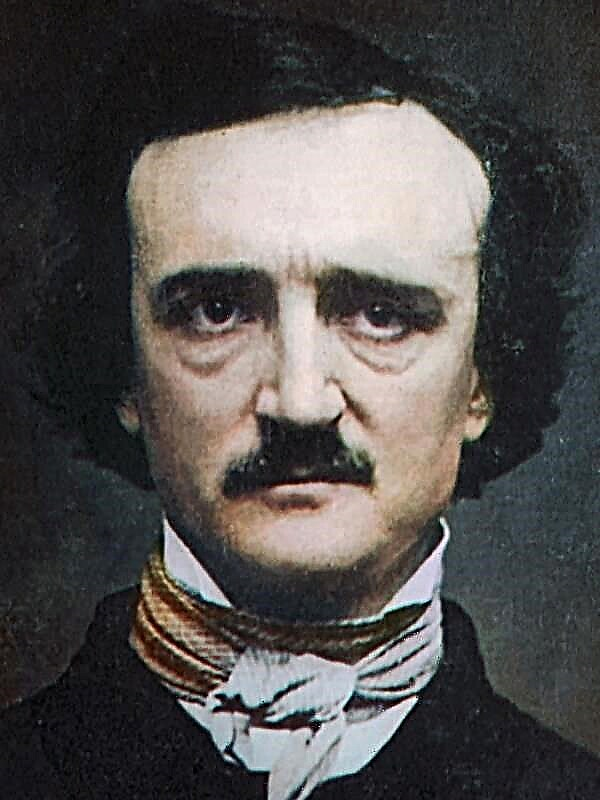
 Black Swan
Black Swan Negotiating without defeat
Negotiating without defeat